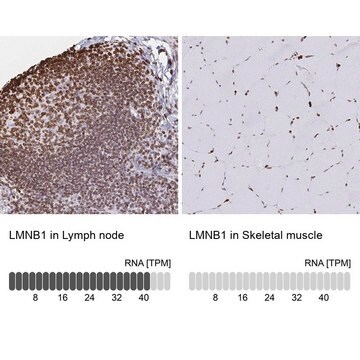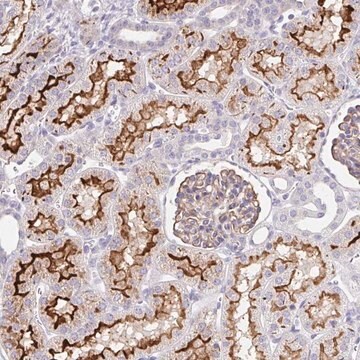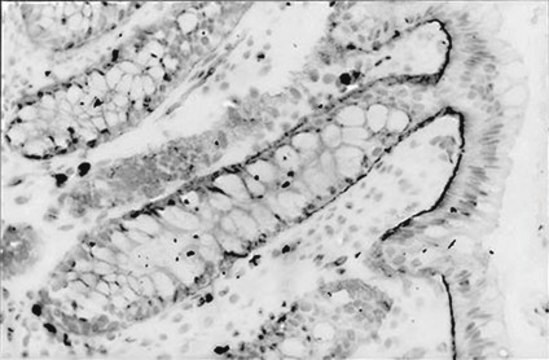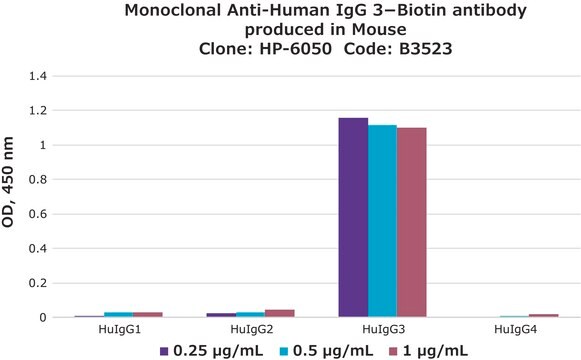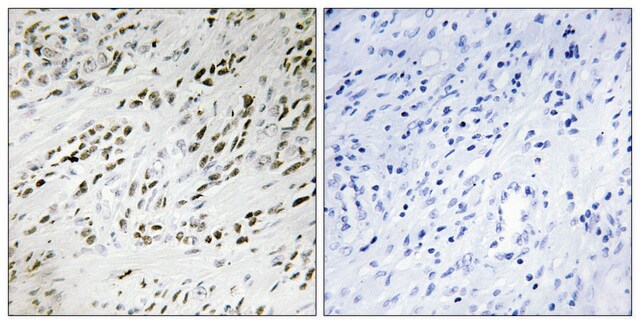MAB1358
Anti-Integrin α6B Antibody, cytoplasmic domain, clone 6B4
clone 6B4, Chemicon®, from mouse
Synonyme(s) :
CD49f
About This Item
IHC
WB
immunohistochemistry: suitable
western blot: suitable
Produits recommandés
Source biologique
mouse
Niveau de qualité
Forme d'anticorps
purified immunoglobulin
Type de produit anticorps
primary antibodies
Clone
6B4, monoclonal
Espèces réactives
human
Fabricant/nom de marque
Chemicon®
Technique(s)
immunocytochemistry: suitable
immunohistochemistry: suitable
western blot: suitable
Isotype
IgG1
Numéro d'accès NCBI
Numéro d'accès UniProt
Conditions d'expédition
wet ice
Modification post-traductionnelle de la cible
unmodified
Informations sur le gène
human ... ITGA6(3655)
Description générale
Spécificité
Broad species reactivity is expected due to the conserved nature of the epitope.
Immunogène
Application
Immunocytochemistry: 1:100-1:500 on frozen sections, 1:50-1:100 with avidin-biotin complex detection
Immunocytochemistry
Optimal working dilutions must be determined by the end user.
Forme physique
Stockage et stabilité
Autres remarques
Informations légales
Vous ne trouvez pas le bon produit ?
Essayez notre Outil de sélection de produits.
En option
Code de la classe de stockage
12 - Non Combustible Liquids
Classe de danger pour l'eau (WGK)
WGK 2
Point d'éclair (°F)
Not applicable
Point d'éclair (°C)
Not applicable
Certificats d'analyse (COA)
Recherchez un Certificats d'analyse (COA) en saisissant le numéro de lot du produit. Les numéros de lot figurent sur l'étiquette du produit après les mots "Lot" ou "Batch".
Déjà en possession de ce produit ?
Retrouvez la documentation relative aux produits que vous avez récemment achetés dans la Bibliothèque de documents.
Notre équipe de scientifiques dispose d'une expérience dans tous les secteurs de la recherche, notamment en sciences de la vie, science des matériaux, synthèse chimique, chromatographie, analyse et dans de nombreux autres domaines..
Contacter notre Service technique

